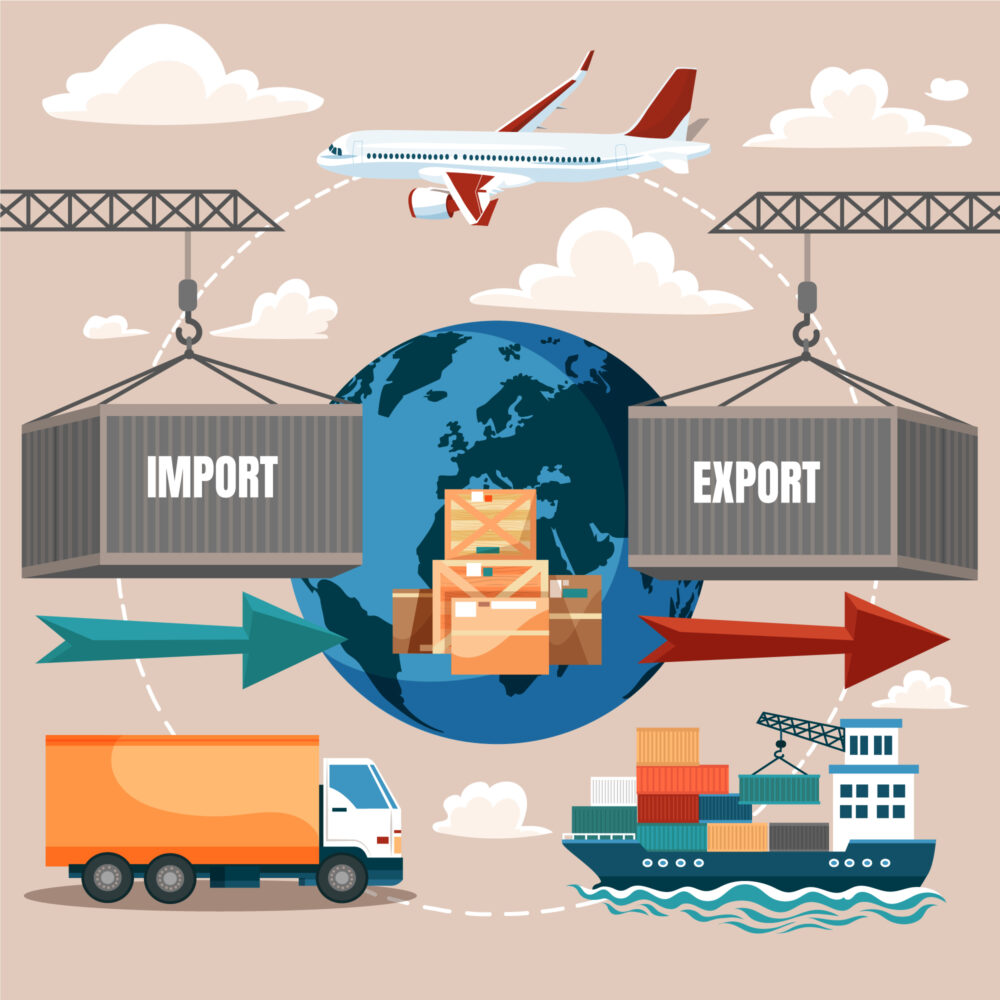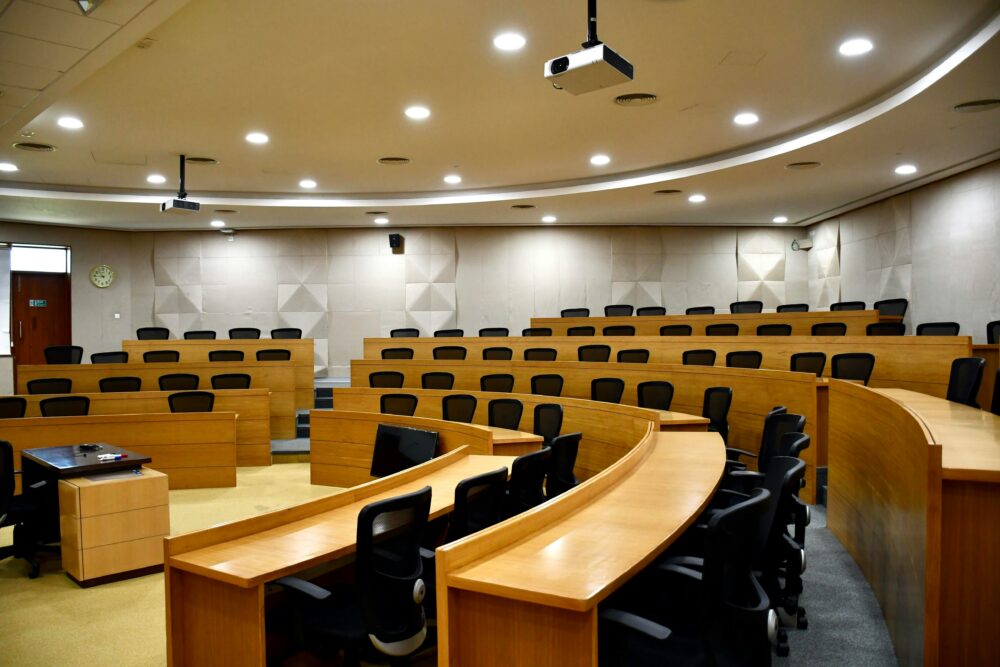International freight transport is a multinational, widespread commercial activity governed by a multitude of regulations. However, more and more intricate disputes are arising in relation to this industry due to its cross-border nature, which encompass a range of issues along the way including determining the applicable law, determining the jurisdiction for resolving dispute, utilizing legal sources other than the national law to resolve disputes, etc.
In Vietnam, maritime activities are primarily regulated by the Maritime Code which serves as specialized legislation and is complemented by other relevant legal sources. In this article, we elucidate common topics and challenges encountered in the dispute resolution. With such information, sea freight participants who are Vietnamese traders, will be equipped with essential knowledge to effectively engage in the dispute resolution process among parties.

1. Jurisdiction for dispute resolution
When entering into a contract, initiating any business transaction, or establishing a collaborative relationship, parties never expect the disruption of the partnership or any dispute arising therefrom. Consequently, the focus on dispute resolution clauses tends to receive less attention.
Normally, for contracts executed by domestic traders established under the Vietnamese law, the jurisdiction for dispute resolution often falls under the jurisdiction of Vietnamese courts, without the need for separate agreement. However, the international freight transport involves parties from different countries and shows the multifaceted nature with engagement of more than one jurisdiction, which implies that the jurisdiction of Vietnamese courts is no longer automatic because each nation has its distinct system of various judicial authorities competent to resolve the same type of dispute, together with a system of arbitral tribunals that the parties may opt for. Therefore, defining the jurisdiction for dispute resolution is paramount.
Practice shows that the parties involved in international freight transport often use the form/template of a supplier (usually a shipping service provider or an intermediary/agent). Such forms or samples contain dispute resolution clauses, including the designated authority for resolving disputes. On our experience, we realize that there are a number of issues that Vietnamese traders need to pay attention to as follows:
- Not objecting to the sample dispute resolution agreement stated in transport documents, such as Bills of Lading (B/L), consignment notes, and others, means giving consent to such dispute resolution clauses.
- In most cases, shipping providers will elect to have disputes resolved within the jurisdiction of the territory where they are headquartered, which helps significantly reduce costs associated with pursuing legal actions against disputes, if any. On the contrary, this increases costs for the opposing party and, in many cases, one party cannot attend working sessions or give up pursuing the case to the end because the cost of the lawsuit is too high (which may exceed the disputed value).
- The majority of judicial systems of a country will be empowered to apply their own legal systems to dispute resolution if parties fail to specify an applicable law for the case. Consequently, the selection of a favorable location or jurisdiction for settling the case equates to an (indirect) advantage in determining the governing law for dispute resolution.
2. Applicable law governing dispute resolution
Many Vietnamese traders do not know that the choice of dispute resolution jurisdiction does not automatically lead to the application of the governing law of such jurisdiction to resolve the disputes. For example, the parties can choose to resolve their disputes at VIAC in Vietnam with the applicable law that is foreign law ( the law of the United States, France, etc.).
Many foreign traders can leverage this to gain an advantage in resolving a case, especially where the law of their home country or the law of their choice possesses features favorable to such traders in respect of such disputed relations. For example, in comparison with the Convention on the International Sale of Goods (CISG 198), the Vietnam’s 2005 Commercial Law allows complaints about non-conforming goods to be voiced within 03 months, in terms of quantity, and 06 months, in terms of quality, from the date of delivery while the former specifies a period of 02 years. If chosen reasonably, the law applied to dispute resolution will be a ticket to the victory of the party choosing such law.
Therefore, to ensure their interests, Vietnamese traders need to pay attention to the negotiation to apply other legal sources with which they have certain familiarity. These may include other familiar sources such as Incoterms, or certain rules and agreements.
Another noteworthy issue is that, in many cases, the selection of the applicable law plays a pivotal role in fulfilling the ultimate objective of the aggrieved party in the dispute, which is indemnification. This is because even when emerging victorious in the lawsuit, if the law of the home country differ significantly from that of the jurisdiction where the ruling or decision is enforced, there might be a potential of unenforceability (we will elaborate on this matter further in Section III).
3. Enforcement of judgements and decisions
When winning a lawsuit, many Vietnamese traders think that they have completed the case and have partially indemnified for the loss, but it may not be true because there is another complicated stage which is the enforcement of an effective judgment, ruling or decision especially when such judgments or decisions are made by any foreign jurisdiction.
If such judgments or rulings will be enforced outside the territory of Vietnam, the Vietnamese traders must contact the State authorities competent to execute the judgments in such countries in accordance with their laws, which will make them incur huge amount of inevitable costs.
If such judgments or rulings will be enforced in the territory of Vietnam, they must undergo the process for recognition and permission for enforcement in Vietnam. This is a complicated process in which a competent court in Vietnam will review such a judgment. Specifically, under the 2015 Civil Procedure Code, the competent court reserves all rights to deny and not enforce the judgment made by a foreign judicial organization. Therefore, even when wining the lawsuit, the enforceability of such a ruling becomes another story altogether.
The international freight transport involves the participation of multiple parties from different countries and the occurrence of disputes thereof is sometimes inevitable, so instead of ignoring it, the parties shall engage actively in the dispute resolution. For Vietnamese traders who do not have much experience compared to their long-standing counterparts in the market, legal assistance from specialized teams of lawyers is crucial. Such a team helps ensure a balance of interests among parties, prevent legal pitfalls, and clarify the dispute landscape.
Disclaimers:
This article is for general information purposes only and is not intended to provide any legal advice for any particular case. The legal provisions referenced in the content are in effect at the time of publication but may have expired at the time you read the content. We therefore advise that you always consult a professional consultant before applying any content.
For issues related to the content or intellectual property rights of the article, please email cs@apolatlegal.vn.
Apolat Legal is a law firm in Vietnam with experience and capacity to provide consulting services related to Dispute Resolution and contact our team of lawyers in Vietnam via email info@apolatlegal.com.





































